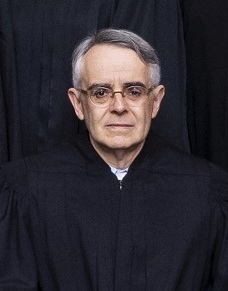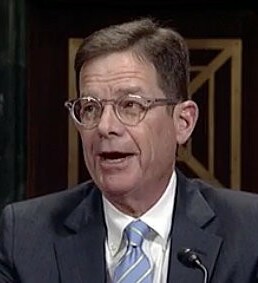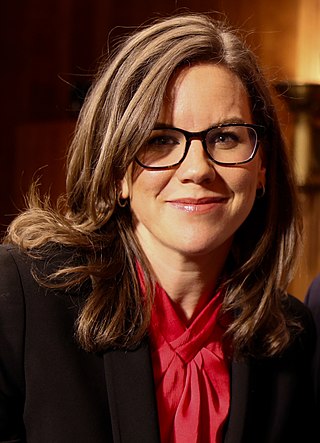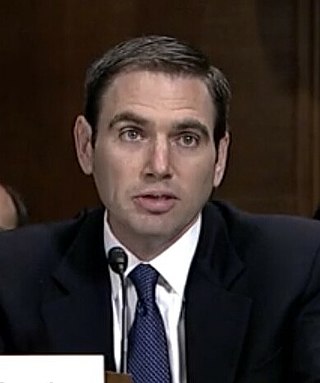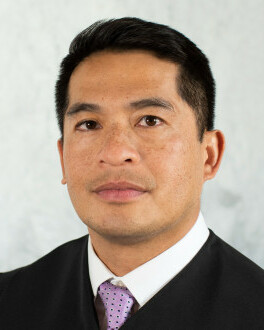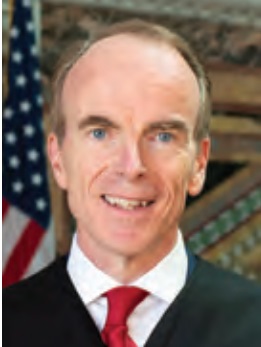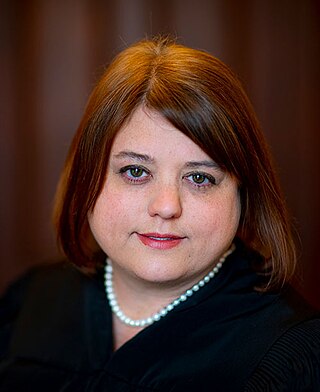Biography
Bounds earned his Bachelor of Arts in psychology and political science, with honors and distinction, from Stanford University in 1995 and his Juris Doctor from Yale Law School in 1999, where he was an editor of the Yale Law Journal and editor-in-chief of the Yale Law & Policy Review .
Early in his career, Bounds served as a law clerk to Judge Diarmuid O'Scannlain on the United States Court of Appeals for the Ninth Circuit from 1999 to 2000. In 2000, he was hired as an associate at the law firm of Stoel Rives LLP in Portland, Oregon. [6] In 2004, he was hired by the United States Department of Justice as a Deputy Assistant Attorney General and Chief of Staff in the Office of Legal Policy. In 2008, he became a Special Assistant to the President for Domestic Policy, acting as the White House's primary policy expert on criminal and civil justice issues. Before becoming a special prosecutor he served as Special Assistant United States Attorney for the District of Columbia. Since 2010, he has served as an Assistant United States Attorney for the District of Oregon, where he prosecutes criminal cases on behalf of the United States. [7]
Failed nomination to U.S. Court of Appeals
On September 7, 2017, President Donald Trump nominated Bounds to serve as a United States Circuit Judge of the United States Court of Appeals for the Ninth Circuit, to the seat vacated by Judge Diarmuid O'Scannlain, who assumed senior status on December 31, 2016. [8]
One week after Bounds was nominated, both of Oregon's U.S. Senators, Ron Wyden and Jeff Merkley, announced they would not return the blue slips for Bounds, saying they had not been adequately consulted on the nomination. The White House Counsel's Office said that it had contacted both senators on several occasions before nominating Bounds, but received very little feedback from either senator. [9]
On January 3, 2018, Bounds' nomination was returned to Trump under Rule XXXI, Paragraph 6 of the United States Senate. [10] On January 5, 2018, Trump announced his intent to renominate Bounds to a federal judgeship. [11] On January 8, 2018, his renomination was sent to the Senate. [12] In February 2018, the bipartisan commission cited by Wyden and Merkley found Bounds to be one of four suitable applicants for the judgeship. [13] However, the Senators continued to refuse to turn in their blue slips, citing college newspaper articles Bounds wrote while a student at Stanford University in the early 1990s. [14]
Prior to his nomination, Bounds did not disclose controversial columns written by him in The Stanford Review about campus sexual assault, workers' rights, ethnic minorities and gender discrimination to the Oregon judicial selection committee convened by the state's congressional delegation. Bounds said he was instructed to provide only material dating back to law school to the selection committee by a staffer of Senator Ron Wyden, who had helped to convene the commission. He did, however, provide those writings to the Senate Committee on the Judiciary. [15] Subsequent to public disclosure of Bounds' college writings, five of the seven members of the Oregon selection committee indicated that had they seen those writings, they would not have recommended Bounds as a candidate for the vacancy. [16] During his confirmation hearing, Bounds apologized for the writings, saying "I share the concerns of many that the rhetoric I used in debating campus politics back in the early '90s on Stanford's campus was often overheated, overbroad" and that his views were "not as respectful" as they should have been. [17] Wyden said he did not believe in the sincerity of Bounds' apology, feeling it was intended only to secure his confirmation. "Nominees for the federal bench must be held to a higher standard," he said. [16]
On May 9, 2018, a hearing on his nomination was held before the Senate Judiciary Committee. [18] On June 7, 2018, his nomination was reported out of committee by an 11–10 vote. [19] On July 18, 2018, the United States Senate invoked cloture on his nomination by a 50–49 vote. [20] On July 19, 2018, Senate Majority Leader Mitch McConnell announced that Bounds's nomination would be withdrawn after Senator Tim Scott, a Republican, announced he could not support the nomination with the information he had at that point; Scott's stance left Bounds's nomination short of the number of votes needed for confirmation. [21] [22] On July 24, 2018, Bounds' nomination was officially withdrawn. [23]
This page is based on this
Wikipedia article Text is available under the
CC BY-SA 4.0 license; additional terms may apply.
Images, videos and audio are available under their respective licenses.

